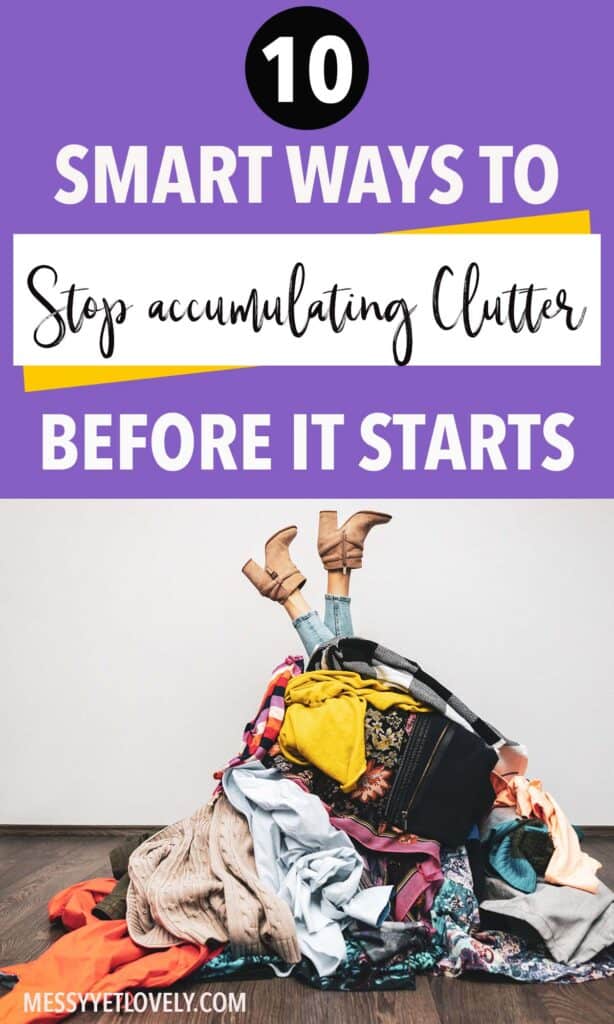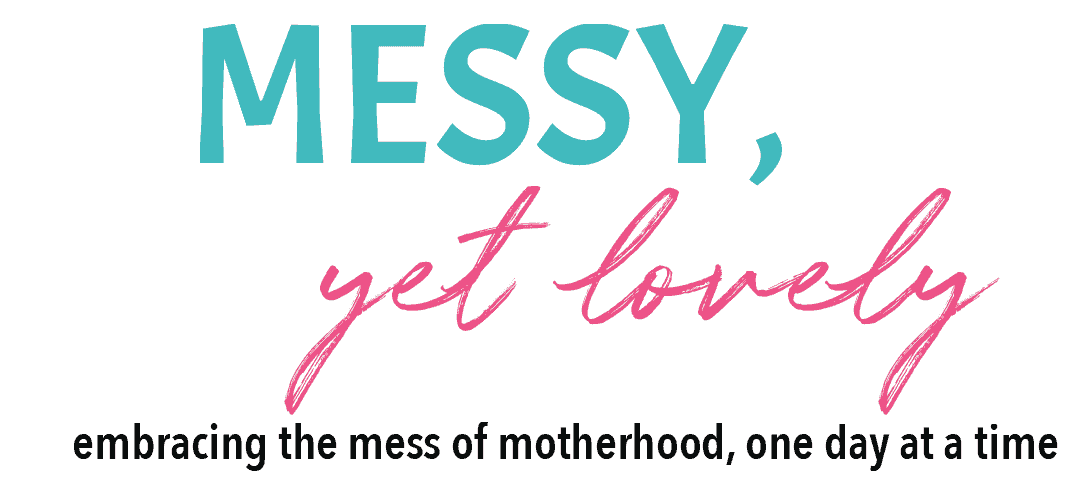The best way to solve a problem is to prevent the problem.
The same can be said about clutter. If you do all the decluttering only to bring back more of it, what’s the point right?
After you do the major decluttering task (or minor), how can we stop accumulating clutter again?
Here are some tips.
FORM GOOD DECLUTTERING HABITS
The best way to prevent clutter from accumulating is to form daily decluttering habits that prevent clutter accumulation.
Let’s see what those good habits are.
1. LEARN TO DEAL WITH THE TEMPTATION
The number one reason we accumulate stuff is that we are tempted by the next cute thing or the next big hyped thing.
Most of the time, we don’t even need those items.
We buy stuff just because they are on sale and think we saved so much money. But in fact, we just spent some money that we were not even thinking of spending.
If you are subscribed to receive sales emails from retailers, consider unsubscribing.
It will also help to unfollow fashion influencers (even though they help you to discover new trends) to stay away from the temptation. When it’s time for you to buy new clothes or accessories, you can check out their page.
This way, you will not be constantly bombarded with new offers and you will buy only what you need when it’s the right time.
And also, when you are at the store and just saw something you think you want, ask yourself many times.
If you already have enough clothes, you don’t want another cute T-shirt right now. Think about the clothes you are yet to wear in your wardrobe.
It might feel hard to put it back on the aisle, but I promise you will forget about it in two days.
To resist impulse buying, I like the idea of putting the desired item on a waiting list of 30 days.
30 days is enough time to think about future purchases and make a logical decision.
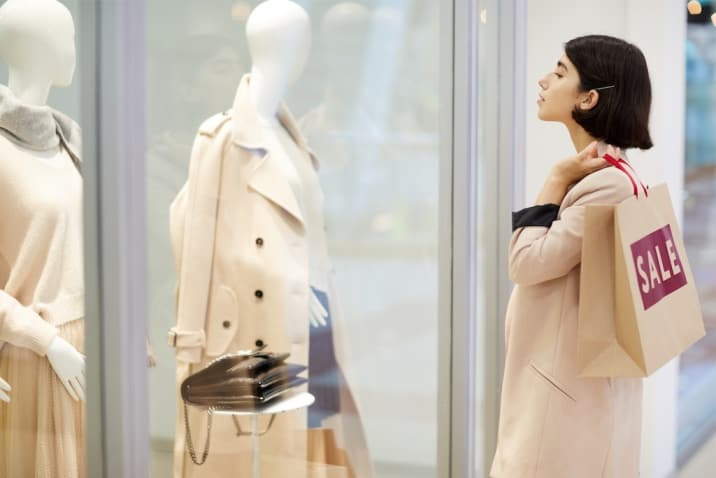
2. DEFINE YOUR PRIORITIES
Why do you want a clutter-free home?
Define your goals.
You might be saving up for a big goal, you want to embrace minimalism or you may just want to save yourself from the overwhelm that clutter brings.
Whatever it is, keep the goal in the forefront of your mind. And define what you need more or less of in your life.
When you know you have enough utensils and home decor, you don’t need to go to the section when you are in the store.
Or don’t look at the shining ads that tempt you to take a look at the beautiful wall hanging when you are online.
It’s all about balance. You must know what too much and too little is for you and your family.
When you are clear about it, it’s easier to avoid unnecessary purchases and thus stop accumulating stuff.
3. BUY ONLY WHAT ADDS VALUE TO YOUR LIFE
It’s not always the big things, but small things can also add up quickly to create clutter.
Since small things don’t cost much money, it’s easier to accumulate them compared to making big purchases. Because before making a big purchase we take time to think and analyze various aspects of it.
Therefore, make it a point to buy only stuff that adds value or meaning to your life, no matter big or small.

4. ASK QUESTIONS
Another way you can stop yourself from buying unnecessary things is to decide to live an intentional life.
Living an intentional life can have different definitions for different people. But it definitely includes making intentional purchases.
Asking the following questions will help you to decide if a purchase is a necessary one or not.
- Do I really need it?
- Is it a need or a want?
- Do I already have anything similar to this item that does the job?
- Do I have a place to keep this?
- Will it add value to my life?
5. AVOID BUYING DUPLICATES
Before buying a new leather jacket, make sure you have used the old one thoroughly and that it is worn out.
Before buying new sunglasses, make sure you no longer want to use the old ones and you are ready to give them away or dispose of them.
This will make sure you use your belongings to the maximum and not buy duplicates of what you already have.
The “One in, One out” rule is a good one to follow to prevent clutter from accumulating.
Whenever you buy something new, find an item you can give away. Of course, do it only if it is something you don’t use anymore.
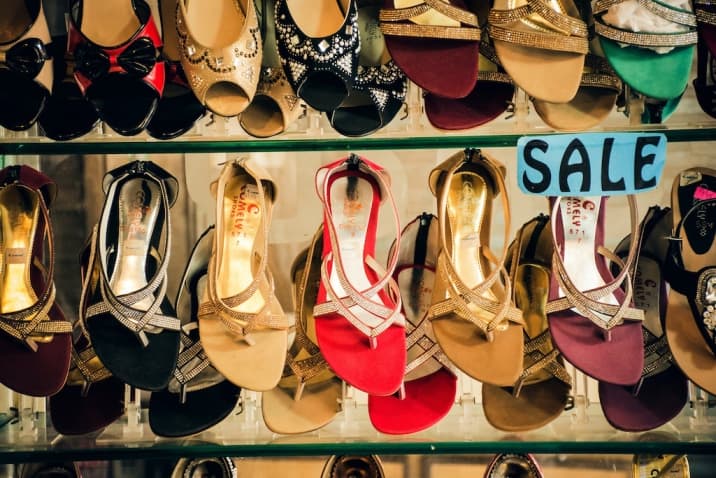
6. WHAT VOID ARE YOU FILLING?
Sometimes we buy new things only to buy new things.
We want to make ourselves feel better by getting a new suit because we got bored of all the old ones.
In that case, you may try adding the item to your 30-day list and assess if you still want it. Maybe you were in a bad mood and now that it has passed, you no longer feel the urge to buy it.
It has happened to me many times that when I postponed the purchase I no longer wanted it.
And sometimes the reason we buy new things is to fill a void that somehow we are not able to fill in life.
Nicknamed “retail therapy”, we believe shopping can make us feel better and boost our mood. It can, as getting new things can give us a small serotonin boost.
But it will pass soon and we are left with clutter.
Before retail therapy makes us accumulate clutter, we need to evaluate our spending habits.
Start getting conscious of your spending habits and ask yourself whether you spend more when you feel low. Curb your emotional spending habit by replacing it with healthier habits.
When you feel stressed or low, ask yourself how you can cheer yourself up by spending time and money without adding clutter.
After all, things are just things and what they give is a slight emotional boost for a few hours or days.
If you want to splurge, be it on good experiences rather than possessions.
7. BUY THINGS ONLY IF YOU HAVE A PLACE TO KEEP THEM
Before buying something, think about how much space it will take and whether you can keep the item neatly in its designated place.
I have decided I will buy clothes only if they can fit neatly in my wardrobe. And if I have new-ish clothes still left to be worn, buying new clothes is unnecessary.
So I avoid the temptation to buy new clothes by thinking about what I already have. Either old clothes have to go out or the ones I have should be worn out to buy new ones.
If you can have a rule like this, you will be more intentional about your purchases and will get used to saying NO to compulsive buying.
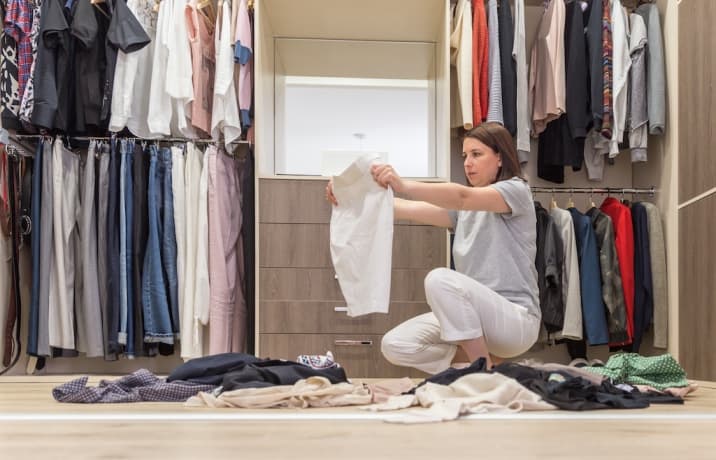
8. CHOOSE QUALITY OVER QUANTITY
When you save money by buying cheap items, they won’t last long and as a result, you will end up buying them multiple times to fulfill the need.
But if you invest in good quality items, even though they cost more money now, they will last longer and save money in the long run.
Then you won’t have broken appliances or torn clothes cluttering up your space causing you buyer’s remorse.
9. GO OUT WITH A SHOPPING LIST
If you go out to purchase things, have a shopping list and buy only what is on the list.
If possible, go to small stores rather than shopping malls where you feel the urge to “check out” new collections.
It helps to boost small businesses and also save money and prevent clutter for you. It’s a win-win.
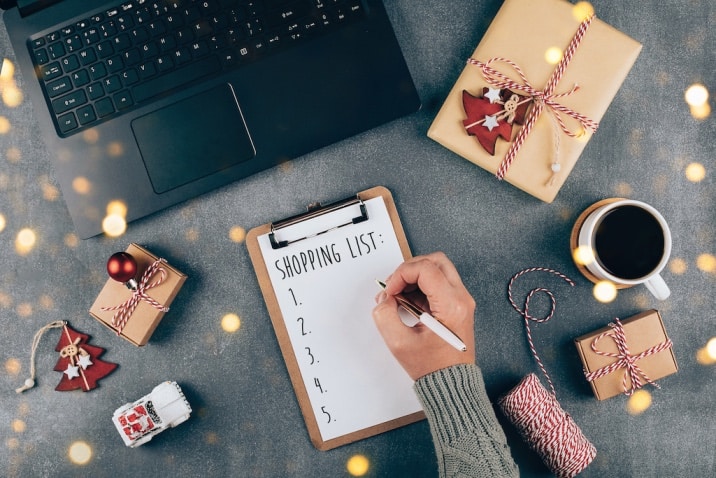
10. DEVELOP GOOD DECLUTTERING HABITS
Establish good daily decluttering habits to prevent your belongings from looking cluttered.
Good habits like,
- Putting things away immediately after use
- Having a specific time every day for decluttering
- Establishing cleaning routines for all family members
- Having a monthly shopping budget
etc. will help you to prevent clutter from sneaking its way back into your house.
MORE POSTS ON DECLUTTERING:
- 100+ things to declutter from your house right now
- 17 common decluttering mistakes you don’t know you’re making (and how to avoid them)
Like this post? Please take a moment to PIN and SHARE!
